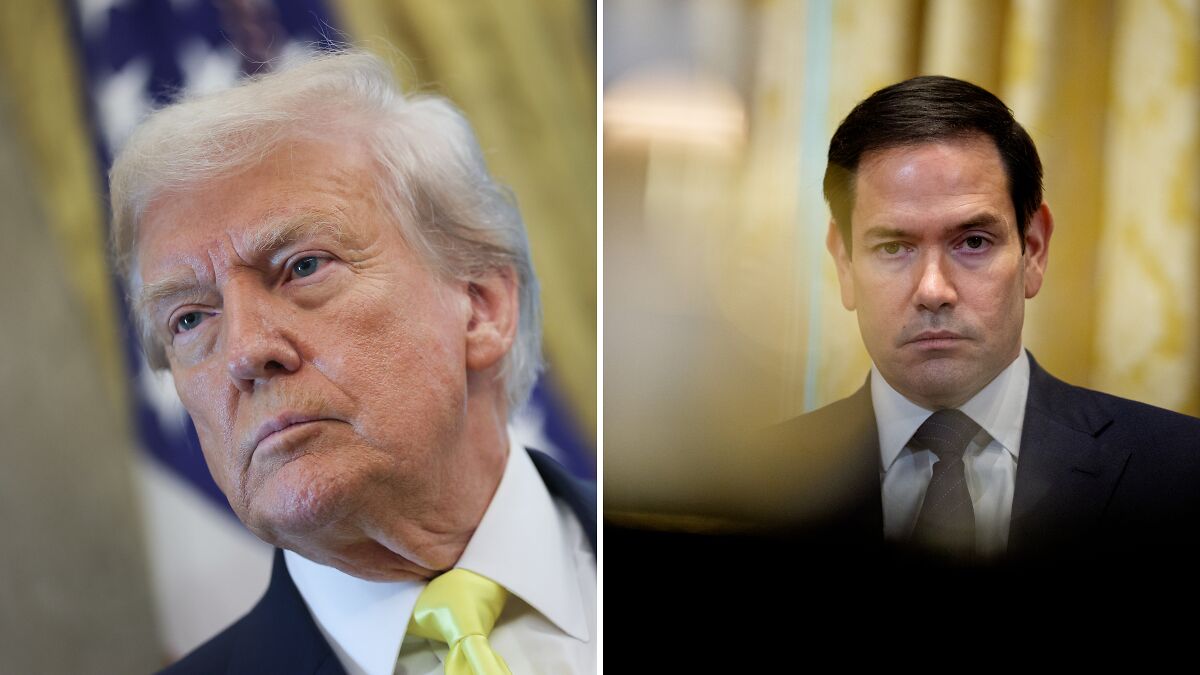
What The Altered U.S. Human Rights Report Reveals About Trump’s Priorities At Home And Abroad
The Trump administration has dramatically rewritten the United States’ annual human rights report, scaling back criticism of allies and increasing scrutiny of nations seen as political adversaries.
The changes, confirmed in the State Department’s latest release, reveal much about the administration’s priorities and its approach to foreign policy. The report covers the 2024 calendar year.
- The Trump administration’s 2024 human rights report was heavily revised, cutting around two-thirds of its original content for political reasons.
- Sections on gender-based violence, corruption, LGBTQ+ persecution, and diversity were removed, shrinking the report to roughly a quarter of last year's edition.
- The report softens criticism of allies like Israel and El Salvador, omitting key issues including Israel’s alleged abuses and prison conditions in El Salvador.
- Countries seen as adversaries, such as Brazil and South Africa, face increased criticism for suppressing free speech and ethnic targeting.
- The report’s quiet release without senior officials and omission of U.S. issues raises concerns about loss of credibility and political bias.
According to CNN’s sources, while the report was completed before Trump’s presidency began, it underwent significant revisions in the subsequent months.
The U.S. annual human rights report has undergone significant revisions and rewriting
Image credits: Win McNamee/Getty Images
For decades, the U.S. human rights report has been applauded to be a comprehensive government assessment of global rights conditions. Officially called the ‘Country Reports on Human Rights Practices,’ it is published once a year by the U.S. Department of State.
It covers 198 countries and territories and documents human rights conditions during the previous calendar year.
The reports are compiled under the Foreign Assistance Act of 1961, which requires the U.S. to consider human rights conditions in other nations when making foreign policy decisions.
The 2024 Human Rights Report has been released, restructured in a way that removes redundancy, increases report readability, and is responsive to the legislative mandates that underpin the report – rather than an expansive list of politically biased demands and assertions.… pic.twitter.com/GyN0HNFpI7
— Department of State (@StateDept) August 12, 2025
But this year’s report is not only pared down and shorter, it is also less comprehensive and misses important sections.
To illustrate this is the fact that last year’s report was about four times the size of the current one.
NPR reported that according to an internal State Department memo, employees were instructed to remove whole categories of violations not “explicitly required by statute” from the report, including gender-based violence and environmental justice.
Image credits: NPR
Roughly two-thirds of the content was slated for removal. In addition, editors were told to omit references to diversity, equity, and inclusion, sexual violence against children, and interference with privacy.
Entire sections on corruption, gender-based violence, and persecution of LGBTQ+ individuals were reduced or eliminated from the report.
Mentions of restrictions on political participation, government corruption, violence against minorities and LGBTQ individuals, and harassment of human rights groups were to be excluded as well.
The editing guidelines also specified a list of 20 countries whose reports required special review by a political appointee before they could be approved, NPR reported.
An internal editing guideline instructed editors to omit references to sexual violence, DEI aspects, and persecution of LGBTQ+ individuals
Image credits: NPR
These included countries like Israel and El Salvador, whose leaders have close ties to the Trump administration, and received noticeably softer treatment.
Israel’s section is heavily toned down, with the report saying the ongoing war “led to a rise in reports of human rights violations,” as opposed to the 2023 report that deemed Israel had “significant human rights issues.”
Rather, it says that “the [Israeli] government took several credible steps to identify officials who committed human rights abuses.”
The State Department released its annual human rights report, but unlike in years past, this edition has come under scrutiny for omitting issues and countries with poor human rights records. @nickschifrin has more. pic.twitter.com/eRAEgt1Hqv
— PBS News (@NewsHour) August 12, 2025
The report also does not mention the International Criminal Court’s arrest warrants for Israeli Prime Minister Benjamin Netanyahu, former Defense Minister Yoav Gallant, and a Hamas commander, Mohammed Deif, who was killed in an Israeli airstrike last year.
Neither does it mention Netanyahu’s criminal trial on charges of bribery, fraud, and breach of trust.
El Salvador, where Trump has been deporting migrants, was described as having “no credible reports of significant human rights abuses,” despite Amnesty International and other groups documenting the harsh conditions in its prisons.
Human rights groups have highlighted the CECOT prison in particular, which is overpopulated, with prison cells filled to twice or three times its capacity, so much so that prisoners sleep standing, Human Rights Watch reported.
Trump has publicly praised El Salvador’s President Nayib Bukele, calling him “one hell of a president” who is doing a “great job.”
Image credits: Win McNamee/Getty Images
Bukele has overseen a massive crackdown on gangs. Under his leadership, more than 85,000 people have been arrested as part of a prolonged State of Emergency, contributing to one of the lowest homicide rates in the Western Hemisphere. Numerous reports detail serious human rights abuses in the process.
In contrast, nations perceived as less aligned with Trump’s political objectives face heightened criticism.
Brazil and South Africa, for example, were singled out for actions that the report claims undermine freedom of speech. The report accuses Brazil’s left-wing government of “disproportionately suppressing the speech of supporters of former president Jair Bolsonaro,” a key Trump ally.
The report also alleges that the South African government is seizing land and targeting the ethnic Afrikaner group. South African Minister of International Relations and Cooperation Ronald Lamola called the report “inaccurate and deeply flawed.”
The report scaled back criticism of allies and increased scrutiny of nations seen as political adversaries to the U.S.
Image credits: Win McNamee/Getty Images
European allies, including the UK, France, and Germany, were flagged for having deteriorating human rights situations for “serious restrictions on freedom of expression.”
In the UK, people have been imprisoned for social media comments. During last year’s summer riots, 17 people were arrested over their social media posts, with some sentenced up to 38 months in prison.
The UK’s section in the report describes the country’s enforcement of media laws as “two-tier,” alleging it targeted “ordinary Britons,” or those leaning right on the political spectrum.
The language is similar to that of British right-wing leaders like Nigel Farage, an ally of Trump, and those who have previously criticized British Prime Minister Keir Starmer, calling him “two-tier Keir.”
Image credits: Jonathan Bachman/Getty Images
The muted release of the report, while Congress is in recess, was delayed by months and sent without senior officials presenting it, marking a break from past practice. Typically, U.S. secretaries of state emphasize the reports’ importance through formal presentations.
This year, Secretary of State Marco Rubio, a former Senate champion of human rights, did not personally present the findings.
Critics argue that the report’s revisions compromise the credibility of U.S. human rights assessments.
The report was released quietly while Congress is in recess, and without the secretary of state presenting the findings
Image credits: Andrew Harnik/Getty Images
Uzra Zeya, a former senior State Department official under the Biden Administration, said the Trump administration’s changes “gut decades of highly respected work” and signal that the U.S. might overlook violations by friendly governments.
“It sends a signal that there’s going to be a free pass from the United States government, that it will look the other way if a government is willing to cut deals or do the bidding of this administration,” she told the BBC.
The report also omits critical domestic context: the U.S. itself faces ongoing human rights challenges, including mass incarceration and restrictions on reproductive rights. Earlier this year, the U.S. was added to the CIVICUS Monitor Watchlist for human rights.
Image credits: David McNew/Getty Images


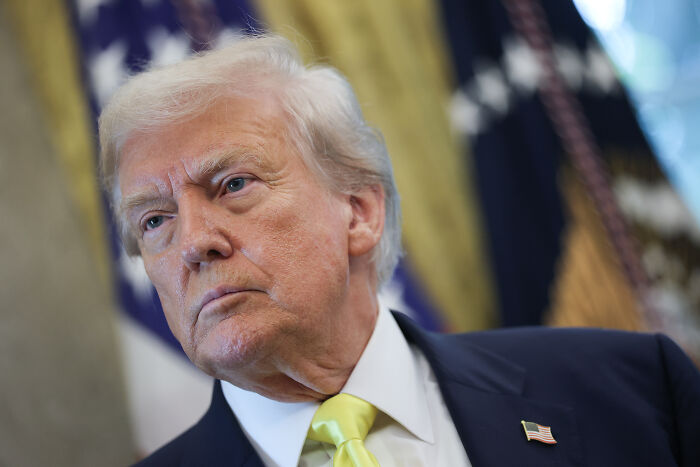
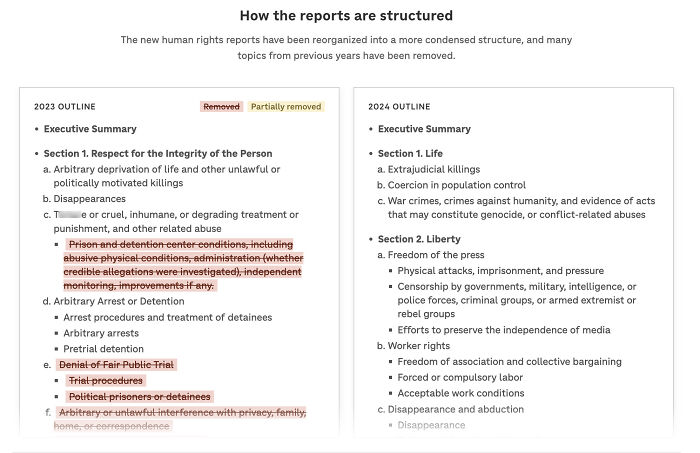
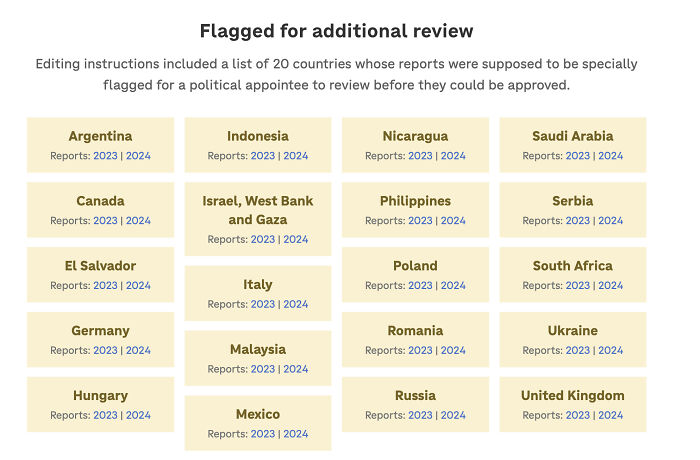
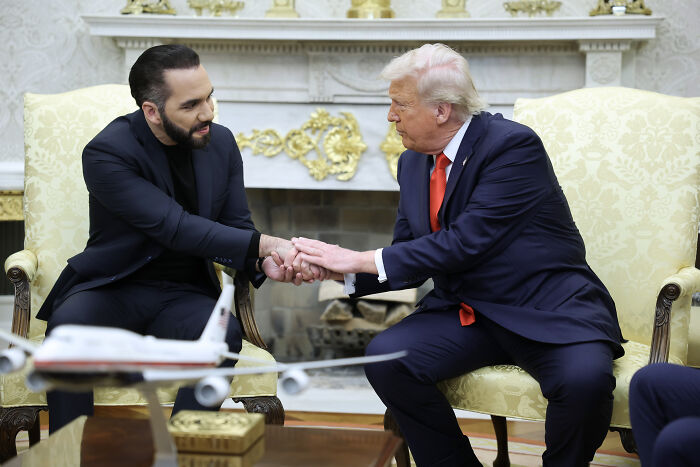
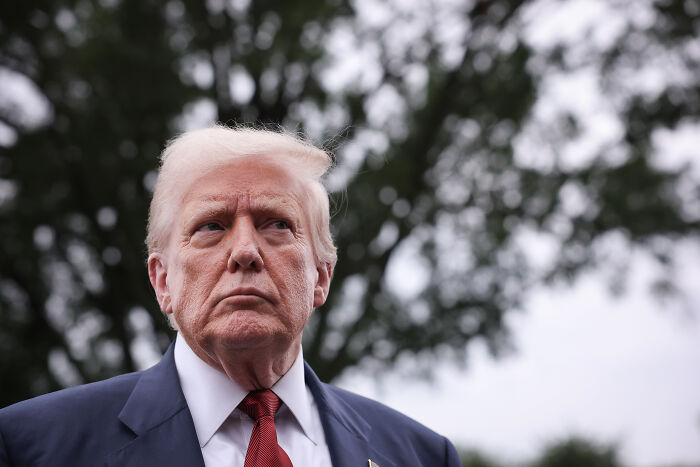
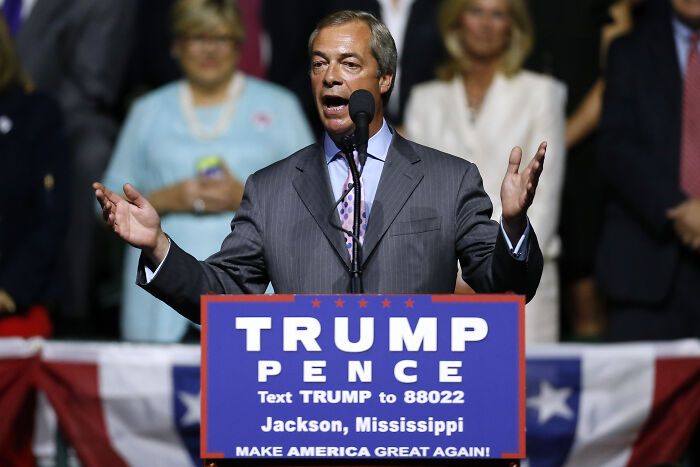
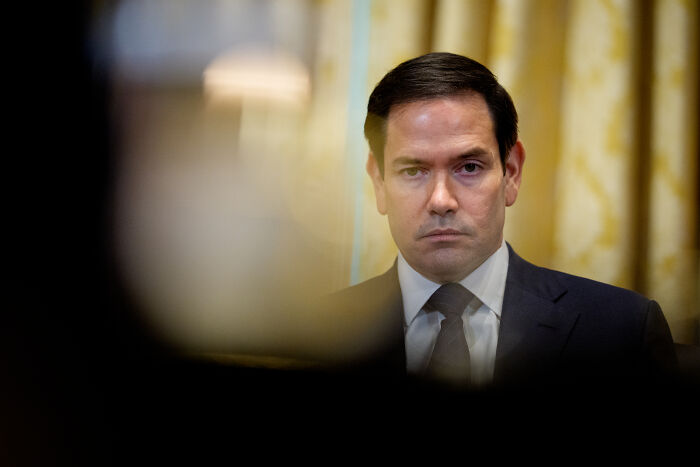
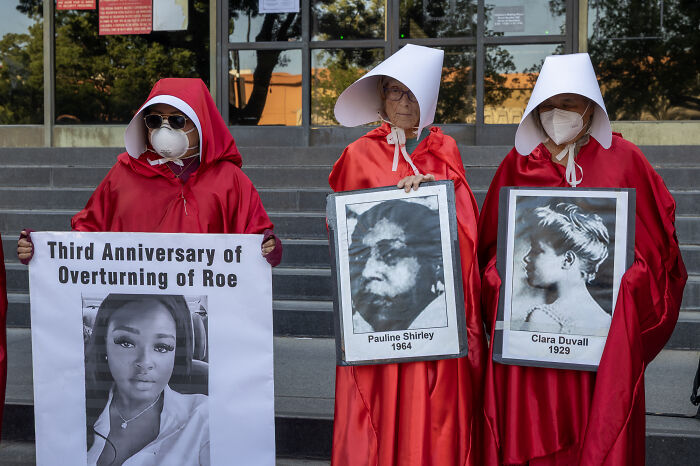



17
0